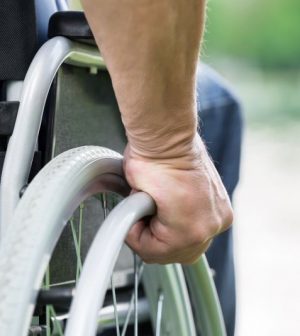- Could Your Grocery Store Meat Be Causing Recurring UTIs?
- Are You Making This Expensive Thermostat Error This Winter?
- Recognizing the Signs of Hypothyroidism
- 10 Strategies to Overcome Insomnia
- Could Artificial Sweeteners Be Aging the Brain Faster?
- Techniques for Soothing Your Nervous System
- Does the Water in Your House Smell Funny? Here’s Why
- Can a Daily Dose of Apple Cider Vinegar Actually Aid Weight Loss?
- 6 Health Beverages That Can Actually Spike Your Blood Sugar
- Treatment Options for Social Anxiety Disorder
FDA Panel Says No to Experimental ALS Drug

THURSDAY, Sept. 28, 2023 (HealthDay News) – An advisory panel to the U.S. Food and Drug Administration on Wednesday voted resoundingly against recommending a stem cell-based experimental treatment for ALS.
Although the FDA isn’t bound by the votes of its advisory panels, agency scientists have already penned a scathing review of the drug, called NuOwn.
The application from Brainstorm, the company that developed the treatment, was “scientifically incomplete” and “grossly deficient,” FDA staff scientists wrote in the review.
Meanwhile, the advisory panel voted 17-1 against the drug to treat amyotrophic lateral sclerosis (ALS), also known as Lou Gehrig’s disease. Only a panelist representing patients voted for the medication, while one adviser abstained from voting, the Associated Press reported.
“Creating false hope can be considered a moral injury and the use of statistical magic or manipulation to provide false hope is problematic,” Lisa Lee, a bioethics and research integrity expert from Virginia Tech who voted against the treatment said, the AP reported.
ALS is typically fatal within three to five years of a patient’s first symptoms, as the condition destroys nerve cells in the brain and spinal cord, taking away the ability to walk, talk, swallow and breathe.
The FDA agreed to convene the advisory panel in response to a 30,000-signature petition from ALS patients and advocates.
But a study from Brainstorm involving 200 patients did not show that NurOwn extended life, slowed disease or improved patient mobility, the AP reported.
Not only that, but Brainstorm’s application was missing details on manufacturing and quality control, the AP reported.
“It really is a disease that needs a safe and effective treatment and there are a lot of other prospects out there that we need to encourage. Approving one like this would get in the way of that,” Dr. Kenneth Fischbeck, a distinguished investigator in the Hereditary Neurological Diseases branch of the National Institutes of Neurological Disorders and Stroke, said, the AP reported.
ALS patients, family members and physicians spoke during the public comment period. This included several who presented before-and-after videos of ALS patients from Brainstorm’s study who were seen walking and climbing stairs, the AP reported.
“When Matt is on Nurown it helps him, when he’s off of it, he gets worse,” said Mitze Klingenberg, speaking on behalf of her son, Matt Klingenberg, who was diagnosed with ALS in 2018.
The FDA has approved two other ALS medications, Qalsody and Reylvrio, this past year following a 20-year drought of new options.
More information
The National Institute of Neurological Disorders and Stroke has more on ALS.
SOURCE: Associated Press
Source: HealthDay
Copyright © 2026 HealthDay. All rights reserved.










